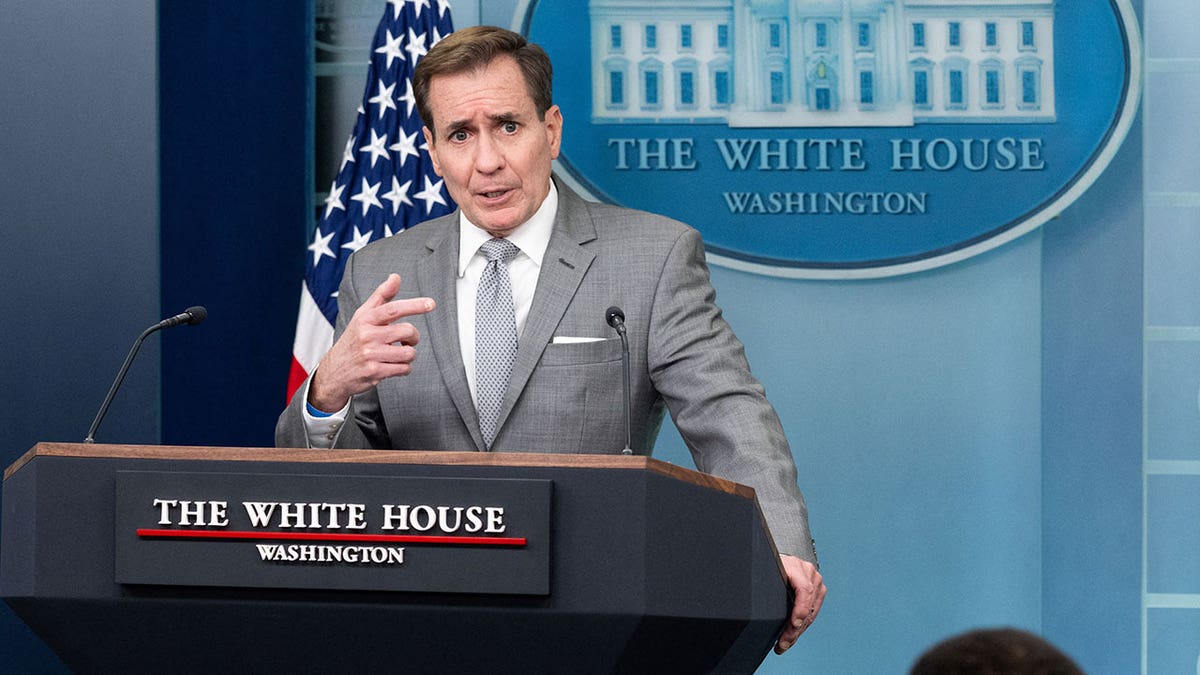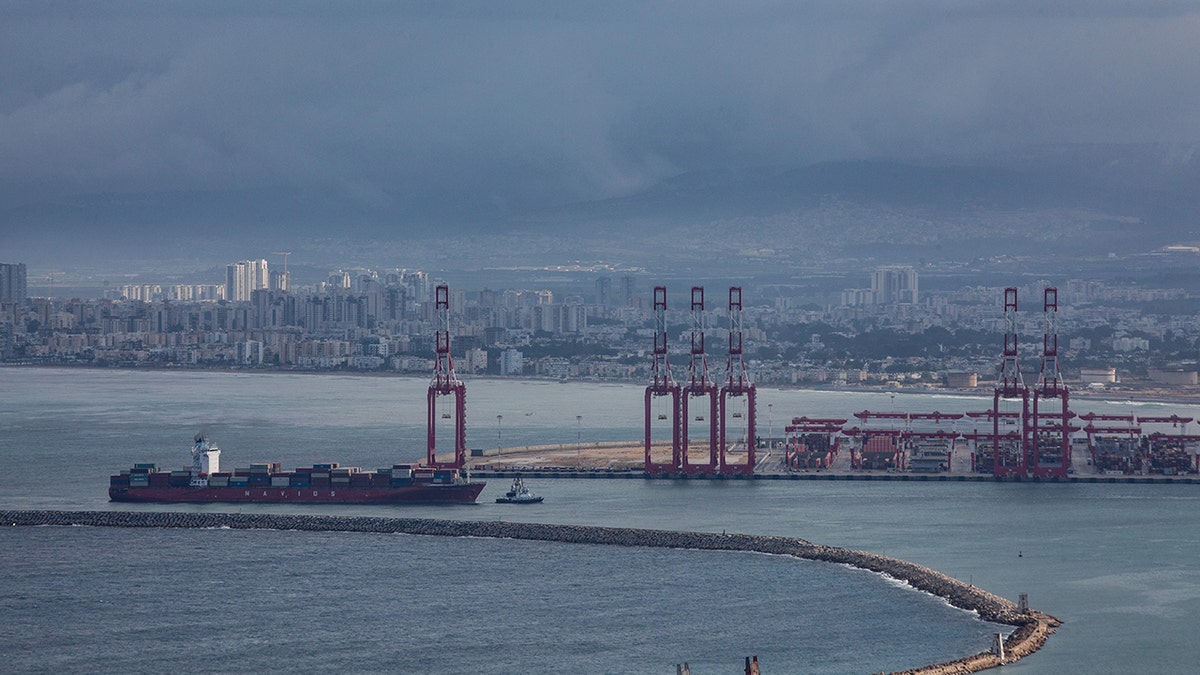White House spokesman John Kirby gets heated in clash with reporter on US naval presence in Red Sea
White House National Security Council spokesman John Kirby got heated in an exchange with a reporter who suggested the United States has provoked Iran with its naval presence in the Red Sea.
White House National Security Council spokesman John Kirby got heated in an exchange with a reporter who suggested the United States has provoked Iran with its naval presence in the Middle East.
During Wednesday's press briefing, the reporter asked Kirby if President Biden has widened and escalated the Israel-Hamas war by deploying naval forces to counter attacks by Iran-backed proxy groups on shipping vessels.
"That's certainly turning things upside down, isn't it?" a bewildered Kirby responded. "Wouldn't you consider provocation launching ballistic missiles and drones at commercial [vessels]?"
There have been roughly two dozen attacks on international shipping by Iran-backed Houthi rebels in Yemen since Oct. 19. The Houthis say their attacks are aimed at Israel-linked ships to stop the Israeli offensive in Gaza.
US-LED COALITION ISSUES WARNING TO HOUTHIS, VOWS ‘CONSEQUENCES’ FOR RED SEA ATTACKS

National Security Council spokesman John Kirby speaks during the daily press briefing at the White House on Jan. 3, 2024. (Saul Loeb/AFP via Getty Images)
Most recently, the Houthis struck a Maersk container vessel on Saturday. Following that attack, a U.S.-led coalition of 13 maritime nations has vowed consequences for the Houthis should they continue to harass vessels in the Red Sea.
Last month, the U.S. announced the formation of Operation Prosperity Guardian, an international initiative to protect commercial ships traveling through the Red Sea. Since then, approximately 1,200 merchant ships have traveled through the region, and none had been hit by drone or missile strikes until Saturday.
Kirby said Prosperity Guardian is a "defensive posture" adopted in response to the Houthi attacks.
HAMAS LEADERS LIVED LIKE WEALTHY CELEBRITIES IN GAZA TERROR REIGN PRIOR TO OCT. 7 MASSACRE

Cargo ships are seen at Israel's Haifa commercial shipping port in the Mediterranean Sea on Dec. 13, 2023. In solidarity with Palestinians in Gaza, Yemen's Houthis are warning that they will target cargo vessels sailing through the Red Sea if they are heading for Israeli ports, regardless of their nationality. (Mati Milstein/NurPhoto via Getty Images)
"So you're denying then that there has been an escalation since the Red Sea patrol," the reporter asked.
"I totally disagree with the premise of your question," Kirby replied. "It wasn't the United States who decided to attack commercial shipping in the Red Sea. The Houthis did that. And who are the Houthis backed by? Iran. As I've said before, Iran provided the missiles the Houthis are using. We are simply in a defensive posture to protect that commercial shipping and we have in the last 48 hours."
Undeterred, the reporter challenged Kirby and pointed out that Iran launched a frigate into the Red Sea in apparent response to the U.S.
ISRAEL ANNOUNCES PARTIAL TROOP WITHDRAWAL FROM GAZA IN NEW PHASE OF HAMAS WAR
"I ask you again, has the United States' actions supported an escalation as a result?" she said.
"No," Kirby answered.
The U.S.-led coalition opposed to the Houthi attacks consists of the U.K., Australia, Bahrain, Belgium, Canada, Denmark, Germany, Italy, Japan, Netherlands and New Zealand. In a joint statement, the nations called attacks on trade in the Red Sea "unacceptable" and "illegal."
CLICK HERE TO GET THE FOX NEWS APP
Currently, there are five warships from the U.S., France and the U.K. patrolling the waters of the southern Red Sea and the western Gulf of Aden. The ships have so far shot down a total of 17 drones and four anti-ship ballistic missiles.
Fox News Digital's Anders Hagstrom and Bradford Betz contributed to this report.







